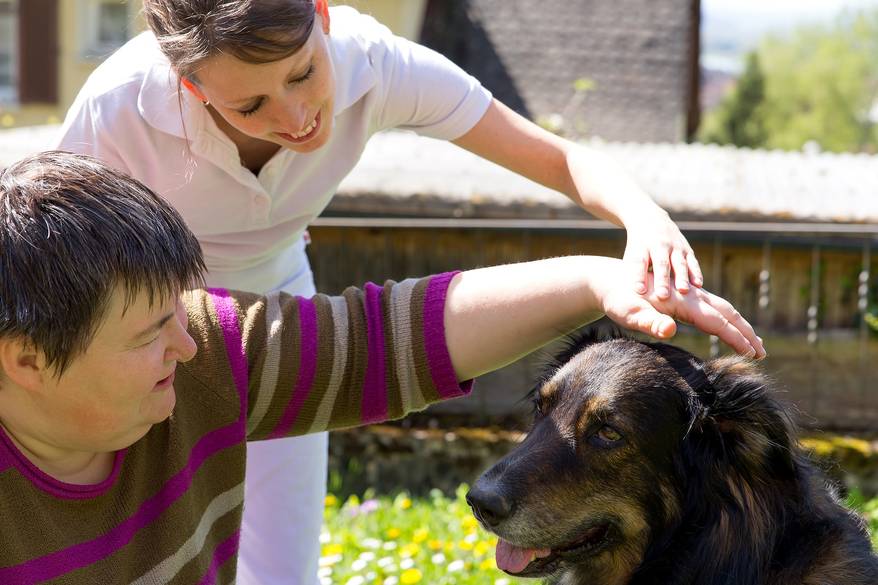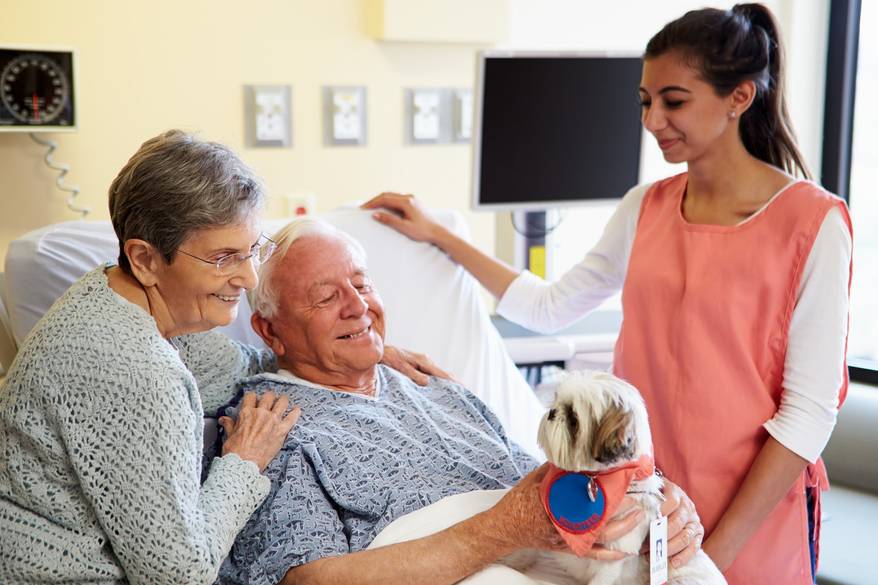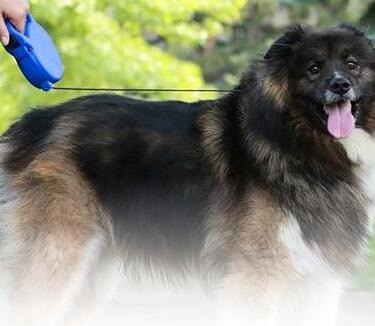
-
Find the right food for your petTake this quiz to see which food may be the best for your furry friend.Find the right food for your petTake this quiz to see which food may be the best for your furry friend.Featured products
 Puppy Large Breed Chicken & Brown Rice Recipe
Puppy Large Breed Chicken & Brown Rice RecipeVital nutrients to support 5 essential building blocks for lifelong health
Shop Now Hill's Science Diet Adult 7+ Senior Vitality Small & Mini Chicken & Rice Recipe Dog Food
Hill's Science Diet Adult 7+ Senior Vitality Small & Mini Chicken & Rice Recipe Dog FoodImproves everyday ability to get up & go
Shop Now Puppy Lamb Meal & Brown Rice Recipe
Puppy Lamb Meal & Brown Rice RecipeVital nutrients to support 5 essential building blocks for lifelong health
Shop NowFeatured products Adult 7+ Chicken Recipe Cat Food
Adult 7+ Chicken Recipe Cat FoodSupports energy level and beautiful fur in mature cats
Shop Now Adult Indoor Chicken Recipe Cat Food
Adult Indoor Chicken Recipe Cat FoodSupports energy level and beautiful fur in indoor cats
Shop Now Adult Sensitive Stomach & Skin Cat Food
Adult Sensitive Stomach & Skin Cat FoodHighly digestible food that is gentle on the stomach. Nourishes skin & promotes lustrous fur.
Shop Now -
Dog
- Dog Tips & Articles
-
Health Category
- Weight
- Food & Environmental Sensitivities
- Urinary
- Digestive
- Joint
- Kidney
-
Life Stage
- Puppy Nutrition
- Adult Nutrition
Cat- Cat Tips & Articles
-
Health Category
- Weight
- Skin & Food Sensitivities
- Urinary
- Digestive
- Kidney
-
Life Stage
- Adult Nutrition
Featured articles The Incredible Science Behind Your Pet's Microbiome
The Incredible Science Behind Your Pet's MicrobiomeLearn what a pet's microbiome is, how it contributes to your pet's gut & overall health, and why nutrition is important in maintaining healthy microbiomes.
Read More Pet Food Storage Tips
Pet Food Storage TipsDiscover how and where to store your dry, as well as canned, dog and cat food. Learn how to find the "best before" dates on all Hill's pet food packaging.
Read More Water
WaterDiscover why water is the most important nutrient for your dog or cat to live a healthy life. Find out how much water your pet should consume each day.
Read More -


Have you ever thought that your dog might make a good therapy dog? Maybe you know of a nursing home where a visit from your dog would infuse the residents' lives with a much-needed dose of joy, but you're not sure how to make it happen or even where to start. If you've ever wondered what steps are necessary to register a therapy dog, or what's involved in training a therapy dog, keep reading.
What Therapy Dogs Do

Therapy dogs, along with their handlers, visit people in places, such as schools, nursing homes and hospitals to help improve the lives of people in difficult situations. When you register a therapy dog, he might cheer up a terminally ill patient or be a friend to a lonely senior. Therapy dogs help kids suffering from anxiety or depression by providing a calming influence. A therapy dog's main job is simply to provide companionship, entertainment and love to those who are struggling with difficult circumstances.
Therapy Dog vs. Service Dog
It's important to distinguish between a therapy dog and a service dog. Service dogs live with the people they're trained to serve and provide highly specialized services, such as guiding the blind or providing assistance to the physically disabled. Service dogs receive rigorous training in order to perform their duties effectively, and they are legally permitted to go wherever their human companions go, including places like restaurants and on airplanes. While therapy dogs enjoy special access to facilities when they're invited to visit, they don't have unrestricted access the way service dogs do.
Training a Therapy Dog
Because a therapy dog's job is simply to be a dog for those in need, they don't have to undergo a lot of specialized training. They do, however, need to be proficient in basic obedience skills and be highly socialized and able to get along well with strangers. Some therapy dog organizations may require their canine students to pass the Good Citizen test provided by the AKC. Therapy dogs may also need to undergo desensitization training so that they won't become rattled in situations involving boisterous children or noisy hospital machines.
Some therapy dog registration organizations provide training courses for those who need them, but most do not. You may need to take it upon yourself to either train your dog or enroll him in independent training courses. These are the courses your dog will likely need to take in preparation for becoming a therapy dog:
- Basic and intermediate obedience training.
- Canine Good Citizen training.
- Desensitization training, which includes exposure to strange situations and loud noises, as well as acclimation to hospitals and other specialized environments.
Check with the organization with which you plan to register your dog to find out the exact requirements. They may be able to assist you with finding classes or a therapy dog training specialist in your community.


Tasty Tips
Additional Therapy Dog Requirements
Dogs of any breed, shape, or size can become therapy dogs. In order to be considered for therapy dog registration, a dog should be at least one year of age. He also needs to be friendly, confident, and well-mannered and not aggressive, anxious, fearful, or hyperactive. You must also be able to demonstrate that either you or the person who will accompany your dog on visitations are able to work well with the dog.
Typically, therapy dog organizations also have health requirements that your dog must meet. For example, Therapy Dogs International (TDI) lists the following health requirements:
- Your dog needs to have had an annual health check performed by your veterinarian within the past 12 months.
- He must be current on his rabies vaccination, and it must have been administered by a vet.
- He must have received all of his core vaccinations, including for distemper, parvo, and hepatitis.
- He must have received a stool exam within the past 12 months, with negative results.
- He must also have tested negative for heartworm within the past year, or be on continuous heartworm prevention medication.
How to Register a Therapy Dog

Before you can volunteer your dog as a therapy dog, you first need to register with a therapy dog organization, that can then match you to facilities where you and your dog can volunteer. Check your local listings for a therapy dog registration organization in your area, or visit the American Kennel Club (AKC) for a list of AKC-approved therapy dog organizations.
Once you're confident your dog meets all the qualifications to become a therapy dog, both you (or the person who will be volunteering alongside your pup) and your dog will need to undergo evaluation by the organization. The evaluation usually takes place in person with a group of other potential volunteer teams, and is typically done in a hospital or nursing home environment. Tests that your dog will undergo might include:
- Meeting and greeting new people
- Sit/stay and down/stay in a group situation
- Coming when called
- Visiting with a patient
- Reactions to children and unusual situations
- The leave-it command
- Meeting another dog
- Entering the facility
Keep in mind that your dog isn't the only one that will be evaluated. The evaluator will also be watching closely to see how you interact with your dog, as well as how well you and your dog get along and work together as a team. If the evaluator is satisfied with both your and your dog's performance, you will both be allowed to register as a therapy dog team.
If a therapy dog organization doesn't provide testing in your area, some organizations, including TDI, make provisions for limited registration based on long-distance evaluation. To be considered, you will need to provide graduation certificates for basic and intermediate obedience courses along with a letter from the obedience school attesting to your dog's temperament. You will also need to provide a letter of recommendation from your veterinarian, as well as a letter from the facility you wish to visit, written on the facility's letterhead, stating that you and your dog are welcome to visit.
It's quite a process to train and register a therapy dog, but it can be a rewarding experience for you and your pup, not to mention for those who will benefit from your dog's companionship.


Jean Marie Bauhaus is a pet parent, pet blogger, and novelist from Tulsa, Oklahoma, where she usually writes under the supervision of a lapful of fur babies.
Related products

Improves everyday ability to get up & go

Improves Everyday Ability to Get Up & Go

Vital nutrients to support 5 essential building blocks for lifelong health

Vital nutrients to support 5 essential building blocks for lifelong health
Related articles

Understand the role that Omega-6 and Omega-3 fatty acids play in your dog's overall health, and how you can ensure they are getting enough.

Learn basic steps & precautions for treating a cut on your dog, including what you can put on the cut, and when you should take them to the vet.

Discover fun and engaging games and other ways to help your dog exercise, keeping him happy and healthy.

Learn how to stop your dog from begging at the dinner table, and understand how it can help contribute to his health.

Put your dog on a diet without them knowing
Our low calorie formula helps you control your dog's weight. It's packed with high-quality protein for building lean muscles, and made with purposeful ingredients for a flavorful, nutritious meal. Clinically proven antioxidants, Vitamin C+E, help promote a healthy immune system.
Put your dog on a diet without them knowing
Our low calorie formula helps you control your dog's weight. It's packed with high-quality protein for building lean muscles, and made with purposeful ingredients for a flavorful, nutritious meal. Clinically proven antioxidants, Vitamin C+E, help promote a healthy immune system.

